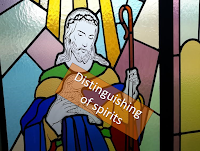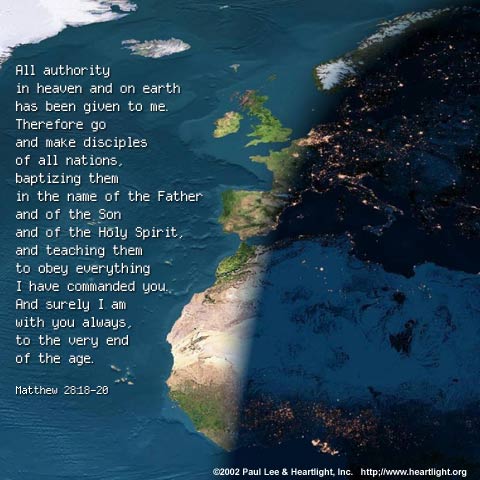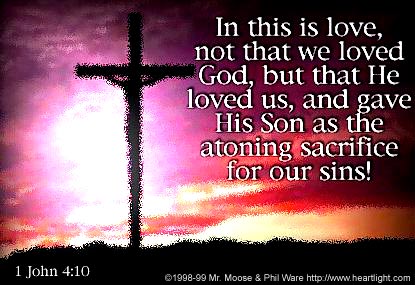There is a new community being built just down the road from
us here at St Peter’s: A retirement village, which in its self is a relatively
new way older people are choosing to live together. For a long time nothing
really seemed to be happening.. It just
looked like a hole in the ground, more seemed to be taken away from the site
than was built… lots of work was going into making sure the foundations were
right. Then Just recently it has sprung up and grown as precut, prenailed
wooden frames and precast concrete slabs have been erected on the site.
To build that community it is taking a large number of
people with a diverse set of skills working together. Different tradesmen, or
as we’ve started calling them after our Australian cousins ‘tradies’: builders,
plumbers electricians, scaffolders… I’m sure we will see roofers, plasterers
painters and landscape gardeners, behind that have been architects, engineers,
project managers, finance people,
lawyers. One person’s talents are very
conspicuous at the moment that of the crane driver. Massive pieces of preformed
concrete get trucked past us down the road and then I’ll look out my window and
see it flying through the air and placed carefully and precisely where it is
supposed to go. As this community is going to be about people, it will also
take the skills of nursing staff, cleaners, gardeners, cooks and administration
staff: All these people using their gifts and talents together to build up a new
community.

We are working our way through the passages in the New
Testament that speak of the Gifts of The Holy Spirit, gifts and talents that
God has given to the church:
Gifts to empower us to witness to Christ, that
empower us to serve and as we will see this week empower us to be built up as
Christ’s body into maturity and the fullness of Christ where every member is
playing it part. Each of the passages has a different list of Gifts none of
them the same, they are all examples rather than an exhaustive catalogue.

This week we are looking at Ephesians 4:1-16 and again we
find the passage starting with therefore… We are at that place in his letter Paul
where moves from expounding the gospel to exhorting it to be lived out or as
John Stott puts it, from ‘Mind stretching theology to its down to earth everyday
application’. For the first three chapters of his letter Paul had been
unfolding for his readers God’s eternal purpose worked out in history. That
through the life death and resurrection of Jesus Christ, God was making a
something entirely new, not just new life for individuals, but a new community
a new way of diverse alienated people to come together as God’s new creation
humanity. Paul now moves to exhort people to live up to that high calling
they/we have in Christ.

Paul starts by saying that we are called to put certain
virtues in place to be the new united people God is calling us to be: Humility,
gentleness (also known as meekness which Francis Foulkes defines as the spirit
of one being so focused on seeking some worthy goal for the common good that
they refuse to be deflected from it by slights, injuries or insults or any
personal consideration of any kind’), then we have patience and bearing with
one another in love. They all reflect God’s virtues shown in Jesus and Paul goes on to say that our unity is based on
the unity of the God head; we are one because we share the same spirit, are the
one body of Christ, we are saved by the same hope, we have one Lord, one faith,
one baptism and One God and Father of all.

Then Paul goes on to say that Christ has given us diverse gifts
to enable and empower us to be that unified people. In a rather long and
complex sentence which is treated like an aside, Paul talks of Jesus as a
conquering king, who has been given all the spoils and so gives out gifts to
his people. (We are more used to his incarnation crucifixion and Resurrection being talked about in these terms in Paul's more poetic (or even use of a song) in Philippians 2:1-11) Paul lists five gifts to the church, and it seems these gifts are
people who act in a certain ministry or function.

The first is that some are given to be apostles. This is a
word that is used in different ways in scripture. It can simple mean someone
sent as a messenger. It’s is used to refer to the twelve with Jesus or the
Apostles with a capital “A’ or people in scripture who had been with Jesus and
had met the risen Jesus Christ. Paul refers to himself as the least amongst the
Apostles. People debate over weather this is still a gift being used today…
Catholics will talk of apostolic succession, they can trse their leadership in
the Pope back to Peter as the first bishop of Rome, and other who talks of a
new apostolic era today.
I just want to say a couple of things about this gift.
Firstly it is given to the church as the foundation of building our community.
Our knowledge of and witness to Jesus Christ is based on the witness of the
Apostles. They have passed on the gospel to us, they founded the church. We can
grow in the knowledge of Jesu Christ because of what they have passed on to us.
The gift of apostles is for the church universal and does refer to that first
generation of Christian leaders. It si through them that we know the gospel we
have been given it, we have been shown through Paul how to begin to apply it to
our own situations and circumstances. It forms the foundation for us.
But there are also people who exercise that apostolic
ministry with a small ‘a’, people who we think of as pioneer missionaries,
church planters or movement starters who seem to bring that gospel to new
situations. In the Presbyterian Church we might look to people like John Knox
as an example. In the Cook Island’s they look back to John Williams as the
person who bought the gospel to the islands. In Rotorua our Cook Island
ecclesia would say we do things this way because that how John Williams of the
London missionary society did them. I would be very reluctant to say people had
the gift of apostle today, and really only time will tell. More recently The
vineyard church has grown up as a worldwide movement they would look back to
John Wimber, whose emphasis on the gifts of the Holy Spirit, contemporary music
and a more relaxed café style service as an apostolic figure.

Prophets we had a look at last week. They take the timeless
truth of the gospel and make it timely. They connect it to the here and know.
Paul could be said t be exercising a prophetic ministry in writing his letters
to the churches. He takes God’s word and then applies it too what is happening
in the church at that time. One of the keys to understanding the epistles in
the New Testament is realising they are written to a certain situation, they
are inspired in as much as they speak to us today as well.

Some to be Evangelists, an evangelist is someone who has the
ministry and gifting to make the gospel understandable to nonbelievers in a way
that calls them to respond. We are all called to witness to our faith in Jesus
Christ and share it but Christ has gifted the Church people who are just gifted
at it. Now we tend to have a negative idea of evangelists as the street corner
person who we associate with hell fire and brimstone and putting people down.
But a gifted evangelist is given the gift to share the gospel effectively. In the older generation I guess people would
look to the ministry of people like Billy Graham. Trent is one of the pastors
down at C3 he heads up their Manukau campus,
and he has a gift in one on one evangelism, I am constantly inspired by
the stories of people’s lives changed he shares on facebook. My friend Zac
doing a PhD in molecular biology is a great apologist for the faith in
university circles. They are totally different but both able to share the
gospel effectively. John Calvin five hundred years ago in Christian Europe
suggested the church didn’t need this gift all the time anymore, but in post Christian New
Zealand we need it more than ever.

Some to be pastors and teachers, these two are linked
together. Some see the other three as people with itinerant ministries given to
the church universal and these two being the local expression of bringing the
ministry of the word. Pastors have the idea of feeding the sheep and caring for
the flock, and teachers are those who systematically open up God’s word so that
people can understand it and apply it to their lives. In the New Testament the leadership of the
church is spoken of in terms of overseers’ bishops, elders and deacons, but in
appointing such people, we are to look for people of integrity and that God as
gifted for that role… Paul told timothy that he should do the work of an
evangelist, and in appointing elders he should appoint people at to teach.
Paul goes on to talk of the effect these gifts should have
on the church. That people should be
equipped for works of service, so that the body of Christ maybe built up, until
we reach unity in the faith attaining the whole measure of Christ. And this has
some important things to say to us

Firstly, it is easy for people to think that these
ministries and gifts are the important thing, where ministry happens. But here
Paul reminds us they are there to build the whole of the church up into the
wholeness of Christ. They are not positions of authority or status but like all
ministry they are service. They don’t belong to the people they belong to the
church… We are called to be a ministry of all believers. In fact if we think
it’s up to the one or two to do it then it’s no wonder the church struggles.
It’s becomes very much like a rugby match thirty people in desperate need of
rest being watched by a whole crowd of people in need of exercise in the
stands. Whereas the book of Hebrews tells us those in the stands are those who
have gone before us and they are there to cheer us on as we do the ministry of
Jesus in our world today.

When I was growing up I went to Titirangi
Presbyterian Church and in our news bulletin it had the Minister: the whole
congregation. Assistant to the ministers: Revd David Strickland. Did you notice on ours this morning?

Secondly, when you look at these five gifts that Paul
mentions here, you see they are all to do with the ministry of the word. The
apostles, the foundation of giving us the words of Jesus, prophets make it
timely, evangelists make it transformational, pastors and teachers make it
central in the lives of local churches. That centrality of the word of God we
symbolise each worship service by bringing in the Bible. We grow into maturity
in love for one another as we allow the word of God to minister to us.
Listen
was the one word that seems to come up all the time this year. Jesus definition
of discipleship was to listen to his word and obey it. Here we see that the
gifts God gives to the church to build us up are about taking Jesus words and
helping us to listen to them. It’s as we do that that we are built us as a
church. That it’s by speak the truth of the gospel out of love for one another
we become more and more like Christ.
Now everyone whose doing sermon bingo is
wonder how I’m going to fit that last word in well here it is…Beetroot. *
Finally Paul finishes with a great picture of the unified
mature people of God. He says it’s the difference between every parent’s
nightmare during the summer time, an infant caught in the waves and rips at a
surf beach tossed about and prone to get dragged away or drowned with each
change of the current, to becoming a strong well-functioning adult able to
stand against the current. A strong functioning body, with a nervous system that
reacts to the thoughts and will of the its head Jesus Christ, and where all the
parts fit well and properly together and play their part in the embodying of
Jesus in the world.
There is a new community being built on Harrison Road, it’s
not down the road it’s right here, we are God’s new creation people, it’s not a
retirement village, it’s Christ’s very active, very alive body, it’s not being
built up by tradies and professionals, it will be built up by the word of God
and as each of us, each part, does it work, in the power of the Holy
Spirit.
* it is school holidays here in New Zealand at the moment so the children stay in the service. One of the ways I try and make the service and the message more kids friendly is to have sermon bingo. Anyone who wants to can get a sheet with words from the sermon on it and mark them off as we go through it. I usually finish up with the last word being before the conclusion so that we don't have a bingo when I am finishing off the application. It is amazing how many adults find this useful as well and the kids are very quite and attentive during the sermon time.

















































